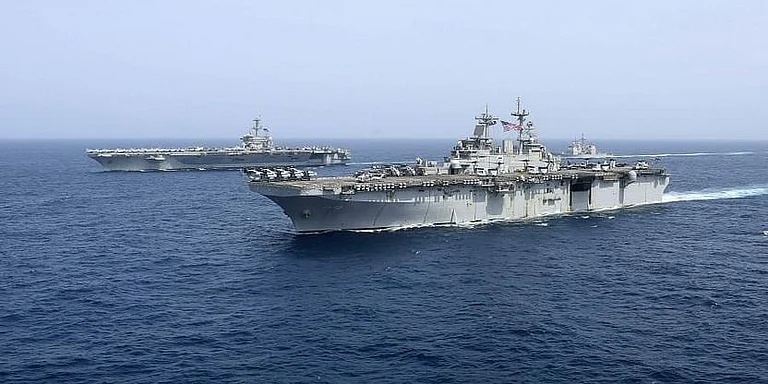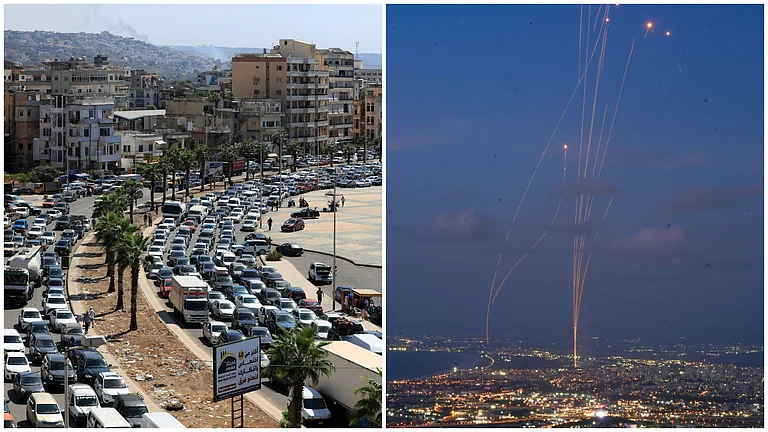Lebanese militant group Hezbollah said on Thuraday it launched over 200 rockets at several military bases in Israel in retaliation for an Israeli strike that killed one of its senior commanders on Wednesday. The attack by the Iran-backed militant group on Thursday was one of the largest in the monthslong conflict along the Lebanon-Israel border.
The Israeli military did not immediately comment on the attack. With a comment awaited from the Israeli side, massive fires have been reported from at least 10 locations in the Galilee and Golan Heights after Hezbollah's rocket barrage.
An Israeli strike in southern Lebanon on Wednesday killed a senior Hezbollah commander as tensions between the two sides continue to simmer, a Hezbollah official said.
A Hezbollah statement identified the slain commander as Mohammad Naameh Nasser, who was known by the name “Abu Naameh,” his nom de guerre, an AP report said.
A Hezbollah official said he was head of the group's Aziz Unit, one of three regional divisions in southern Lebanon.
Hezbollah Top Leader Killed In Israeli Strike
The strike near the Lebanese southern coastal city of Tyre came increasing global efforts to stop fights between Hezbollah and the Israeli military from turning into a full-scale war, which, could lead to a direct conflict between Israel and Iran.
The Israeli military acknowledged the attack, saying that Nasser alongside Abdullah are “two of the most significant Hezbollah” militants in southern Lebanon. It said Nasser led attacks from southwestern Lebanon.
Nasser is the most senior official from the Iran-backed group killed since Taleb Sami Abdullah, who was killed in an airstrike June 11.
Hezbollah leader Hassan Nasrallah in a speech honoring Abdullah said he played a pivotal role on the front line since clashes began on October 8 last year leading the Nasr Unit.
Hezbollah's Role In Israel-Hamas War
Hezbollah launched rockets towards northern Israel a day after a Palestinian militant group Hamas's surprise attack on southern Israel on October 7, leading to limited clashes along the tense border.
Since then, the attacks have gradually escalated, with Hezbollah introducing new weapons in their attacks and Israel striking deeper into Lebanon.
The group maintains that it will stop its attacks once there is a cease-fire in the Gaza Strip. Until then, Hezbollah it will continue with its attacks to mount pressure on Israel and the international community.
Israeli officials have threatened to launch a larger military operation should Hezbollah not stop its attacks.


























